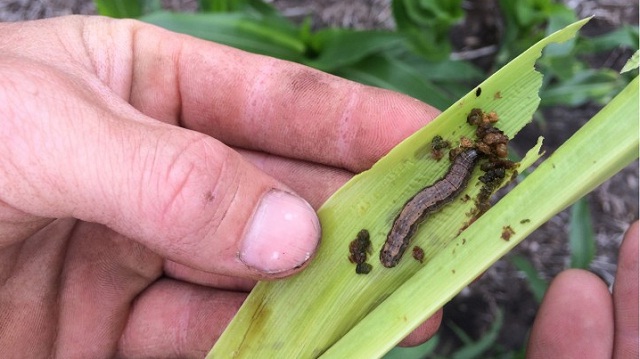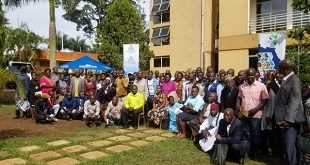
Kampala, Uganda | THE INDEPENDENT | The Fall Armyworm has been devastating the maize crop since 2016. Scientists hop that biological control method will minimize the use of synthetic insecticides and reduce harm to the environment
Insect scientists within Africa including neighbouring Kenya say they have discovered a biological weapon against the fall armyworm.
The fall armyworm emerged as a serious pest of cereal crops in Africa in 2016 when it devastated the maize crop in Southern Africa and later East Africa.
The scientists in a study published in the Journal of Insects have discovered that eggs of another moth originating from the America can be an environmentally friendly option to synthetic insecticides being used in the management of the pest.
They are suggesting the introduction of Telenomus Remus-the main egg parasitoid of S. frugiperda as possible biological arsenal against fall armyworm.
Telenomus Remusis an egg parasitoid — an insect that completes its larval development within the body of another insect leading to the death of its host.
The eggs of parasitoid of S. frugiperda were according to the journal surveyed in five countries in South, West, and East Africa.
The scientists say presence of T. Remus in Africa provides a great opportunity to develop biological control methods and register the parasitoid against S. frugiperda.
They suggest that surveys should be carried throughout Africa to assess the present distribution of T. Remus and that the parasitoid could be re-distributed in the regions where it is absent, following national and international regulations.
Uganda Radio Network could not reach the scientist from the Centre for Agriculture and Bioscience International (CABI) for further explanation.
Use of biological control methods where other insects or moths are used to fight plant pests have been used to fight diseases in cassava and other crops.
Dr B. M Prasanna, the Director, CGIAR Research Program MAIZE & Global Mai International Maize and Wheat Improvement Center (CIMMYT) says that much as his organization is directly not involved in the published research, biological control using integrated pest management is one of the options to fight the pest.
Maize farmers have been spending a substantial amount of their incomes to purchase synthetic insecticides since the outbreak of the Fall Armyworm. It is hoped that with the suggested biological control, less synthetic insecticides will be used.
Spodoptera frugiperda or Fall Armyworm previously limited to America and the Caribbean was estimated to cause 600 million dollars in damage in Brazil every year according to the FAO.
In America, 67 cases of insect resistance to pesticides have been identified to date, illustrating the difficulty of controlling these populations. Since January 2016, it has become invasive in Africa, where it destroys maize crops in 21 countries in the south and west parts of the continent.
******
URN
 The Independent Uganda: You get the Truth we Pay the Price
The Independent Uganda: You get the Truth we Pay the Price



